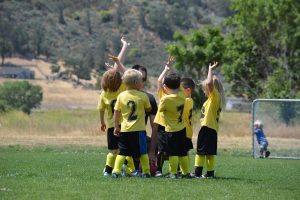12 Culture Change Within the Canadian Sport System: Practical Examples from Sport Organizations That are Using a True Sport Approach to Achieve Safer Sport
Kasey Liboiron
Karri Dawson
Themes
Values
Amateur Sport
Culture Change
Learning Objectives
When you have completed this chapter, you will be able to:
LO1 Recognize True Sport as an approach to fostering a positive sport culture;
LO2 Explain the benefits of a True Sport experience;
LO3 Describe how True Sport can support safe sport efforts; and
LO4 Recall the seven True Sport Principles.
Overview
In Canada, a fundamental change in culture is required across the sport system to minimize the threats to sport and ensure a safe sport experience for all. True Sport is an approach to values-based sport that is underpinned by seven principles: Go For It, Play Fair, Respect Others, Keep It Fun, Stay Healthy, Include Everyone and Give Back. A good sport experience, one that reflects the True Sport approach, can instill character in our children, strengthen the communities where it is played, and increase opportunities for personal and podium excellence. Good sport doesn’t happen by chance, it takes intentionality. Groups such as Sport Nova Scotia, Gymnastics Canada, BC Artistic Swimming and Field Hockey Canada are actioning True Sport as a holistic, preventative, and positive approach in their safe sport strategies. They also understand that the absence of harm isn’t good enough; learn more about their journeys to deliver the kind of sport Canadians want.
Key Dates
What is True Sport?
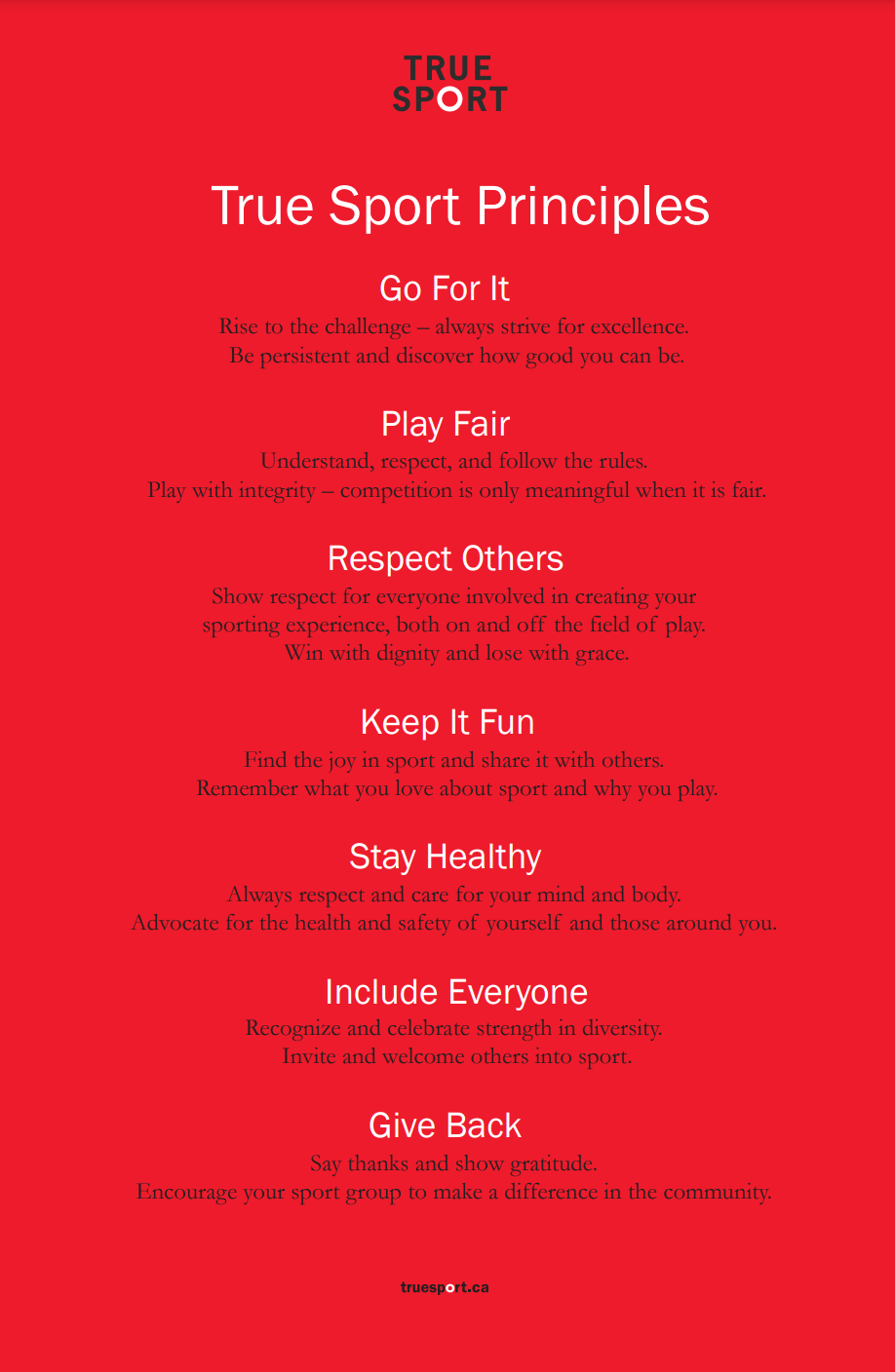
True Sport, an approach to values-based sport, is an initiative of the Canadian Centre for Ethics in Sport (CCES) and is designed to give people, communities, and organizations the means by which to leverage the many benefits of good sport from a platform of shared values and principles.[1]
To prevent unethical conduct in sport, all stakeholders must commit to contributing to a positive sport culture grounded in shared values. The True Sport values were identified by Canadians who believe that sport has the power to instill character in participants, strengthen the communities where it is played, and increase opportunities for personal and podium excellence, but who felt the sport system was falling short.[2] The True Sport values of fairness, excellence, inclusion, and fun are underpinned by the seven True Sport Principles:[3]
- Go For It: Rise to the challenge – always strive for excellence. Be persistent and discover how good you can be;
- Play Fair: Understand, respect, and follow the rules. Play with integrity – competition is only meaningful when it is fair;
- Respect Others: Show respect for everyone involved in creating your sporting experience, both on and off the field of play. Win with dignity and lose with grace;
- Keep It Fun: Find the joy in sport and share it with others. Remember what you love about sport and why you play;
- Stay Healthy: Always respect and care for your mind and body. Advocate for the health and safety of yourself and those around you;
- Include Everyone: Recognize and celebrate strength in diversity. Invite and welcome others into sport;
- Give Back: Say thanks and show gratitude. Encourage your sport group to make a difference in the community.
These principles are the foundation for positive and rewarding sport experiences and when incorporated consistently and intentionally, foster an environment for the benefits of good sport to become more fully realized within Canadian communities.
History of True Sport
In 2001, at their conference in London Ontario, Canada’s Federal-Provincial/Territorial Ministers responsible for sport came together to discuss how to bring ethics and respectful conduct back into the way Canadians play and compete. They believed that damaging practices—cheating, bullying, violence, aggressive parental behaviour, and even doping—were beginning to undermine the positive impact of community sport in Canada. The first step they took in turning back this negative tide was the signing of what is now known as “The London Declaration”, an unprecedented affirmation of positive sporting values and principles.[4]
In 2002, following this conference, the Canadian Centre for Ethics in Sport (CCES) undertook a nationwide survey to canvas public opinion on the same topics. The survey results confirmed the important role that sport plays in the lives of Canadians, as well as Canadians’ strong desire to uphold a model of sport that reflects and teaches positive values.[5]
In September of 2003, a diverse group of stakeholders including, leading sport officials, sport champions, parents and youth from across Canada were brought together through a symposium entitled “The Sport We Want.” Several strong messages emerged from this gathering. First, Canadians believe sport has the power to foster community engagement and teach young people important skills and principles. Second, Canadians believe sport could be doing more to fulfill its potential. Third, Canadians at many levels of sport—from parents and community coaches to Olympians and other elite competitors—were eager for a national values-based initiative that would engage communities and sport organizations across the country.[6]
In 2018, key stakeholders from across Canada convened through a series of round table discussions and a culminating national symposium, “The Values Proposition: Building a Stronger Canada Through Values-based Sport”, to discuss the merits of more intentionally infusing values into the Canadian sport system.[7] The overwhelming take-away was that values-based sport experiences have an incredible ability to create positive change at the individual, community and national levels. As such, a key outcome of the symposium was a series of clear and coherent game plans designed to guide the integration of values-based sport across all sectors and levels of competition.[8] Activation of these game plans from grassroots to high-performance will serve to further reinforce the need outlined in the 2012 Canadian Sport Policy.
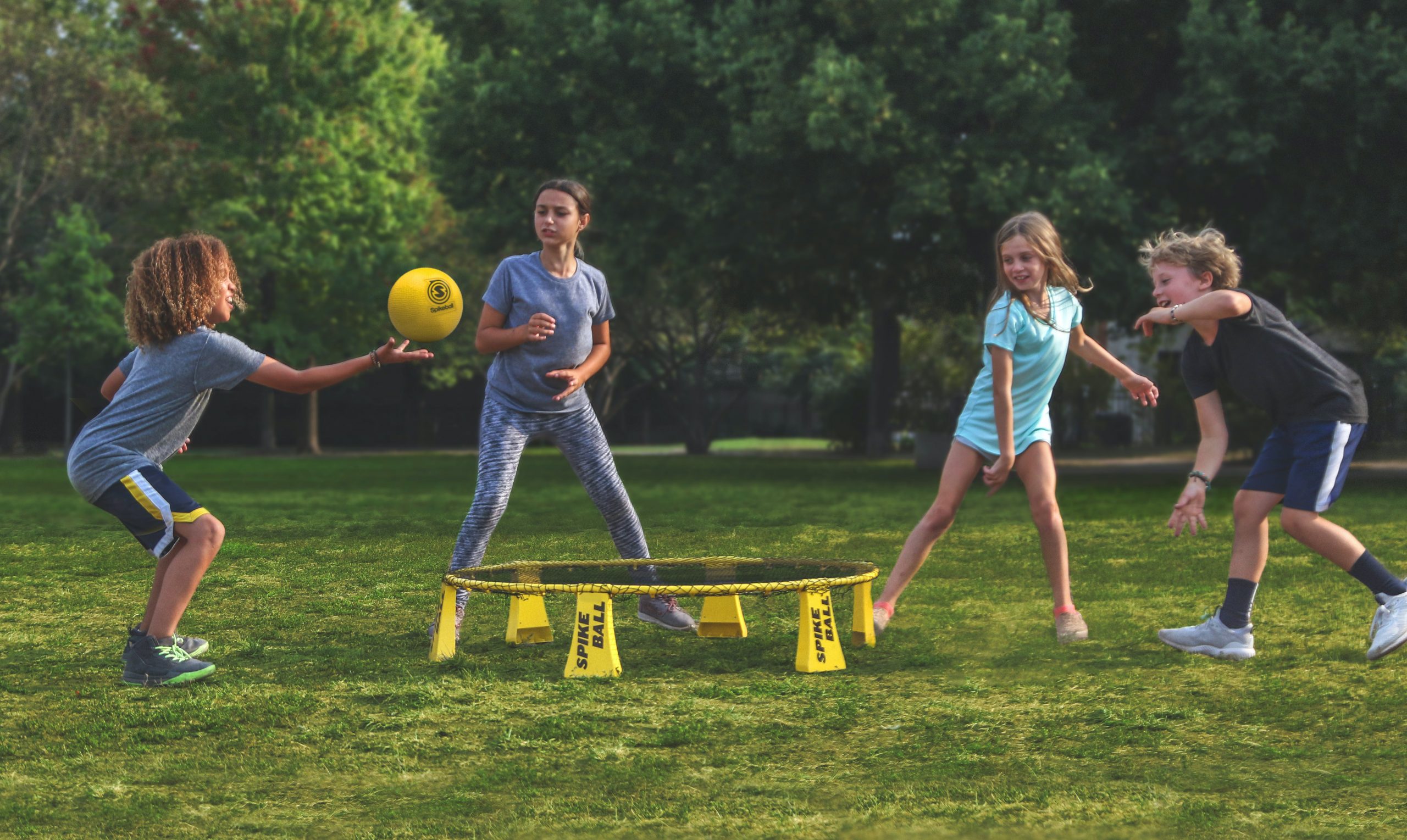

In Practice: Be a Champion for True Sport
If you believe that good sport can make a great difference, you too can become a champion for True Sport. Whether you are an athlete, a coach, an official, a parent, a sport administrator, or have some other role in sport, there are True Sport resources, initiatives, and tools that can help you get started.
Step 1:
Join True Sport – add your name to the growing list of Canadians who are committed to doing their part to ensure sport maximizes the benefits for everyone who is involved. By publicly declaring your commitment to True Sport you are making a statement about the kind of sport you expect for yourself and others.
Step 2:
Start conversations with those you participate with, about why you come together to play, train, and compete and agree on what you want to strive for and how you can incorporate the True Sport Principles. Communicating your belief that creating a fair, safe, and open environment where good sport can flourish will bring out the best in people and communities.
Where you go from here will depend on your role in sport and your desire to influence others.
Figure 12.1 True Sport Member Type Infographics
The Canadian Centre for Ethics in Sport and Safe Sport
The CCES recognizes the difference that True Sport can make for individuals, communities, and our Nation. As such, the CCES is committed to working collaboratively with partners in the Canadian sport system in order to activate a values-based sport system, advocate for sport that is fair, safe, and open, and protect the integrity of sport.
As part of this mission, the CCES and the Coaching Association of Canada developed a partnership to launch the Responsible Coaching Movement (RCM).[9] The RCM is a call to action for sport organizations and coaches to maximize the positive benefits of sport through values-based coaching. The RCM is a Canada-wide initiative that is the result of ongoing consultations with the Canadian sport community.
In addition to providing athletes with sport-specific skills, coaches are also in a unique and privileged position of power. The RCM aims to protect athletes and coaches from unethical and illegal behaviour through the implementation of measures such as: the Rule of Two and background screening and ethics training.[10] The RCM recognizes the impact that coaching can have on athletes which is why the RCM seeks to have coaches consider how they coach, not just what they coach. Through this initiative, the difference between a safe sport environment and one that elicits positive growth and personal development can be achieved.
Following the introduction of the rule of two, background screening and ethics training, the next phase of the RCM focuses on identifying and addressing negative coaching behaviours, while moving toward positive coaching behaviours that can make sport a more welcoming and inclusive environment. Future RCM work will address parental behaviour, highlight transformational coaching, and offer additional tools and resources including a social media policy.[11]
Video 12.2 The Power of True Sport
Video provided by True Sport. Used with permission. [Transcript]
True Sport and Safe Sport
The Canadian sport community has identified safe sport as a prevalent issue and is committed to addressing and preventing it. Several strategies are required to act on this commitment; as a key prevention strategy, the CCES is working to create a system-wide culture change in sport by activating values-based sport through an approach called True Sport.
True Sport provides a platform of shared values and principles upon which to build various initiatives that contribute to good sport. Connecting True Sport to safe sport practices helps provide a proactive and positive framing to safe sport. True Sport provides a framework for stakeholder education and engagement and reflects a clear desire to not only minimize harm within the sport experience, but to strive for sport optimization by ensuring a culture of good sport underpinned by the seven True Sport Principles.
Canadian sport governing bodies can choose to take a reactive approach and focus on safe sport issues one by one as they emerge, or they can take a proactive approach and work collectively to foster and nurture safe and welcoming sport environments that provide more opportunity for sport to do good. Together, we can be guided by a set of principles and commit to igniting positive change that minimizes maltreatment in sport while setting a safe sport standard for future generations to build upon.
True Sport as an Upstream Approach
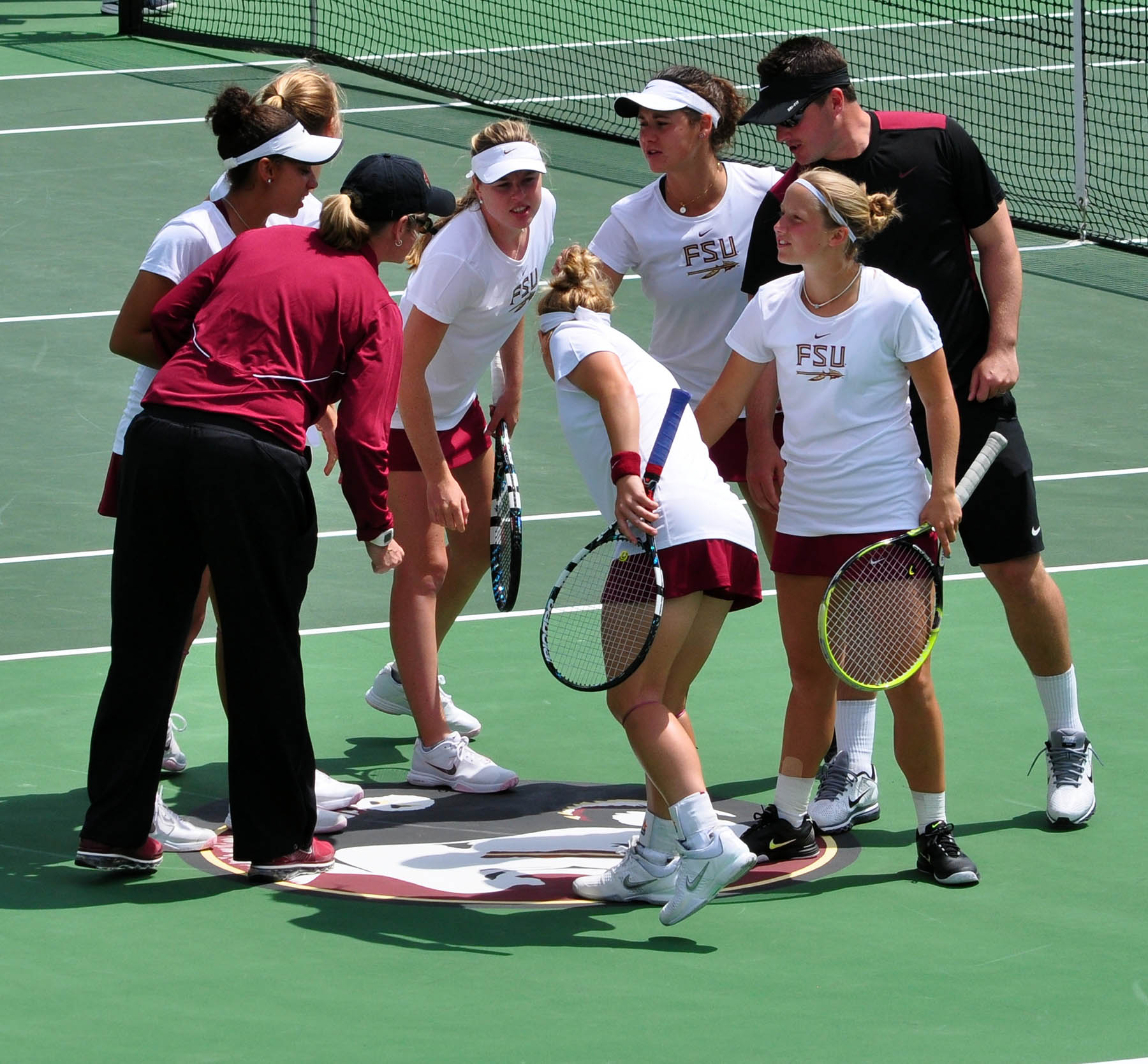
Sport groups across Canada are prioritizing their commitment to safe sport. These groups have developed strategies and policies, have committed financial and human resources, and are implementing new practices and procedures in order to curb incidences of maltreatment. Still, many are left asking:
- Will this really make a difference?
- Can the bad actors truly be deterred?
- What is it about the culture of sport that allows for so much maltreatment?
- Why are people accepting of certain behaviours in a sporting context, but would take offense to them if they happened in the street or in our schools?
Nevertheless, research indicates that it’s time for a change. Previously accepted practices, such as the use of extreme exercise as punishment, is not only problematic but we have also learned that disciplinary strategies are far more effective.[12] Coaching practices that rely on aggression and criticism as a way to develop tougher athletes may now be considered emotionally abusive.[13] These kinds of approaches are beginning to be viewed differently because evidence is mounting regarding the negative short and long-term impacts on participant mental health and overall well-being. We also know that these kinds of approaches not only contradict the way people learn best but maybe more importantly, athletes who are subject to this kind of behaviour are more likely to leave sport for good.[14]
In the last two years, several sport organizations, such as Sport Nova Scotia and the Canadian Sport Centre Atlantic with their Nova Scotia True Sport Athlete Ambassador Program, and Gymnastics Canada’s values-based coaching module, have leaned into True Sport as an upstream, solution focused approach that engages all stakeholders in fostering a positive safe sport environment minimizing maltreatment.[15] A commitment to True Sport helps communicate that the absence of harm is not the objective; the true desire of these sport organizations is to create an environment that allows for sport optimization.
Groups like Field Hockey Canada appointed a True Sport Lead instead of a Manager of Safe Sport, a title that describes the type of sport experience they seek versus the kind of experiences they’re working to mitigate. One of Gymnastics Canada’s first True Sport initiatives was the development of a values-based coaching module, an online learning course aimed at educating coaches on the organization’s commitment to True Sport and an invitation to help lead the promotion of this significant culture shift within the sport.[16] BC Artistic Swimming (BCAS) has been trail-blazing a meaningful commitment to culture change in their sport through their activation of True Sport since 2017. Since that time, they have continued to explore innovative and fun ways to bring True Sport to life within their network such as:
- Offering in-person workshops to promote True Sport to their members;
- Showcasing True Sport at all BCAS events;
- Participating in a True Sport Activation Workshop to develop an overarching provincial True Sport Strategy;
- Launching a social media campaign using the hashtag #TrueSportTuesdays; and
- Developing a True Sport Policy for all members.
In the News:
True Sport Across Canada
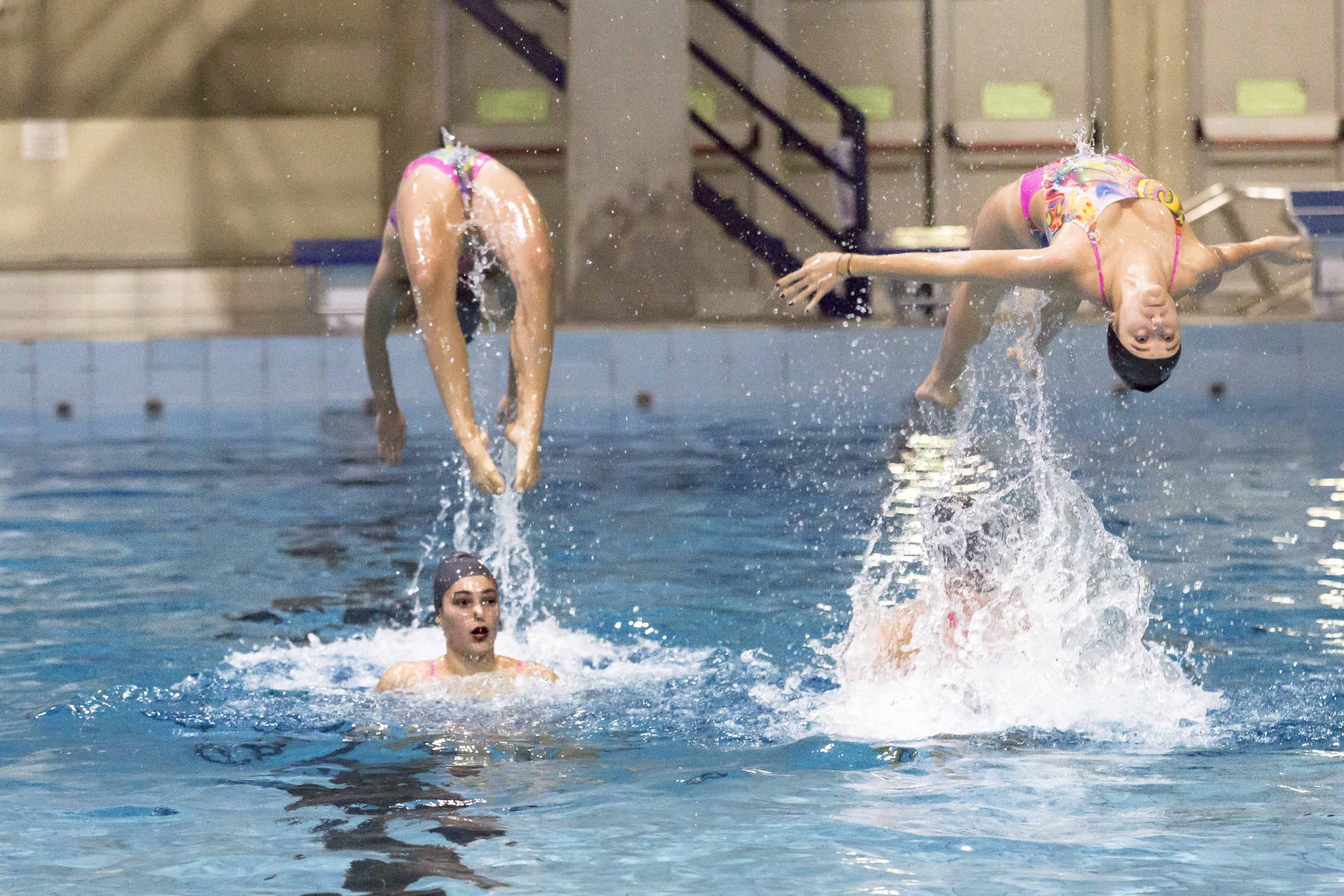
“EVOLVE: How one organization is tackling culture change” CCES, November 25, 2021
Jennifer Keith, Executive Director of BC Artistic Swimming, highlighted BCAS’s focus upon a positive sport experience for all by stating: “Our commitment to True Sport helps us ensure that the sport we are offering is providing a fun, safe, welcoming space for all members – not just for our athletes but also volunteers, staff, coaches, and officials”.[17]
“Field Hockey Canada Announces Jenn Beagan as True Sport Manager” Field Hockey Canada, April 15, 2021.
This brief article by Field Hockey Canada announces the creation of a new position within the organization. Jenn Beagan – former player and professional coach – takes on the role of ‘True Sport Manager’ in an effort to weave safe sport values and guidelines throughout all areas of Field Hockey Canada. The article highlights the importance of an equitable, diverse, and fun environment while creating a safe space for athletes, officials, and staff.[18]
“The Absence of Harm is Not Enough” by Elana Liberman, Sport Nova Scotia, September 28, 2020.
This article from Sport Nova Scotia details Safe Sport Lead Elana Liberman’s journey of realizing safe sport. She recalls the emphasis placed on the absence of harm (abuse, harassment, and discrimination) when discussing safe sport, however, she highlights the ambiguity that the word “safe” encompasses. Within her role at Sport Nova Scotia, Liberman expands on the definition of ‘safe’, adopting a values-based approach that makes everyone feel welcome. Sport Nova Scotia’s action in achieving ‘safe’ sport under the organization’s expanded definition are also discussed:[19]
Culture Change through True Sport
To ensure safe sport and positive sport experiences for all, we need to change the deep-rooted culture of Canadian sport. From to 2001 to 2018 numerous touch points, including round tables, symposiums and surveys have been commissioned and have reaffirmed that a values-based approach is the ideal way to achieve culture change.
True Sport and its seven principles are a holistic approach applicable to all sports, at all levels and touches all stakeholders. A commitment to these principles on and off the field of play should collectively get us closer to the culture we seek. In addition to the organizations highlighted above, there are more than 4700 groups, representing millions of Canadians, that have declared their commitment to the principles by joining True Sport.
To make change we need to be intentional about what we want to do and how we are going to do it. Using True Sport as the approach, we can be intentional and consistent in our application of the principles across all policies, programs and practices. When we activate values-based sport, the likelihood of positive experiences for participants and all other stakeholders will increase. When participants enjoy sport, they stay involved and participate over a longer period and often encourage those around them to get involved as well. When more people are participating and contributing to a positive sport culture, the wealth of benefits that emerge in communities begins to take shape.
The True Sport Report offers overwhelming evidence that good community sport can deliver a broad spectrum of benefits that Canadians care about.[20] Beyond the obvious health and wellness benefits, communities experience social, economic and environmental benefits to name but a few – in short, good sport can instill character in our children, strengthen our communities and increase opportunities for personal and podium excellence.[21] The realization of these benefits is contingent on and enhanced by the adoption of True Sport as the foundation of the sport experience.
This notion has been at the heart of True Sport for many years. Unfortunately, bad things still happen in sport and those stories infiltrate our newsfeeds daily. These headlines are often the result of win at all costs attitudes. Negative issues are not singular in focus, sport is vulnerable to poor parental behaviour, maltreatment of officials, weak sport governance, etc. Theses negative sport stories can overshadow all that is good about sport and ultimately drive people out of sport for good.[22]
These issues contribute to why kids are dropping out of sport, why parents are thinking twice before enrolling their children in sport, and why some athletes say they won’t return to organized sport post pandemic. When this happens, people, communities, and Canadian society as a whole lose the opportunity to benefit from all the good that sport can offer.

In a recent article, Dr. Gretchen Kerr discusses next steps along the safe sport journey and states “When sport is safe, welcoming, inclusive, and fulfilling, and is respectful of individuals’ rights and welfare, prevention of harms occurs naturally.”[23]
Counterpoint:
Can Culture Guard Against Maltreatment?
Can the culture of sport truly work to guard against maltreatment and other safe sport issues? Why or why not? Won’t predators do as they wish regardless of the culture?
Should parents be more involved in their children’s sporting experiences? Should they monitor their children’s sport-related activities and relationships more closely? Do some parents’ “win at all costs” mentalities give license to others to use strategies that could be considered maltreatment?
Does safe sport mean sport leaders can no longer be “tough” on athletes? How can sport leaders apply effective coaching techniques that produce podium caliber athletes under increased scrutiny within a hyper-sensitive environment? How can coaches apply consequences without making themselves more vulnerable to accusations of abuse?
Video 12.3 True Sport Lives Here Manitoba
Video provided by True Sport. Used with permission. [Transcript]
So Where To From Here?
Changing culture is a long game – it’s the day to day, consistent and continual commitment by all stakeholders to live the True Sport Principles that will foster the sport culture Canadian’s say they want. Over the last few years a lot of time has been spent talking about what’s wrong in sport and developing the policies and frameworks to address the issues. Expected standards of what not to do are well in place; it’s now time to move to what we can and should be doing.
True Sport is a commitment that each and every stakeholder in the Canadian sport system can make to contribute to a sport system that we can all be proud of. True Sport is a positive, upstream approach that when consistently and intentionally activated, can help us achieve the safe, welcoming, inclusive and beneficial sport environments that we seek.
Canadians believe that good sport can make a great difference. Everyone has a role to play in ensuring they are making a positive contribution – what role will you play?
Video 12.4 The Ride Home
Video provided by True Sport. Used with permission. [Transcript]
Self-Reflection
- Reflect on your experience in sport.
- What do you believe are the greatest benefits of sport participation?
- What values or principles need to be in place in order for the benefits of sport to be realized?
- Who is responsible for committing to those values and principles?
- Reflect on a time when you loved sport. What was it about that sport experience that makes you think of it so fondly? Could you use one or more of the True Sport Principles to describe that experience? Will this reflection change your behaviour in sport going forward?
- Reflect on a negative sport experience. What was it about that experience that made it so bad? Can you identify which True Sport Principles were not at play during this experience? Does this reflection change your view of what the priorities in sport should be? Will it change your behaviour in sport going forward?
- Reflect on your experience in sport.
- What do you believe are the greatest benefits of sport participation?
- What values or principles need to be in place in order for the benefits of sport to be realized?
- Who is responsible for committing to those values and principles?
Case Study:
Gymnastics Canada
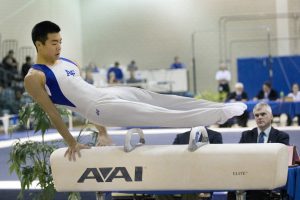
In response to increasing incidences of maltreatment in the sport of gymnastics, the Canadian sport governing body, Gymnastics Canada, sought the guidance and support of the Canadian Centre for Ethics in Sport to help them foster a more consistent values-based sport experience. They recognized that True Sport, as a holistic, preventative, and positive approach could drive the culture change that was desperately needed in their sport. Their engagement efforts began with several staff members participating in a True Sport Activation Workshop to learn more about how True Sport could be integrated into their policies, programs, and procedures.
Staff identified priority areas which included coach education, event education and team selection processes. Their first True Sport Strategy action item was to produce an online learning course for coaches. The Values-Based Coaching Module introduces gymnastics coaches to the values and principles of True Sport, expands their understanding of the connections between values-based sport, Gymnastics Canada’s Safe Sport Framework and the long-term development model, and provides practical exercises to help coaches implement key learnings in real-life situations. Early survey results showed that 96% of respondents who completed the values-based coaching module believe that intentionally engaging in True Sport will benefit themselves as a coach as well as their athletes. Gymnastics Canada remains committed to True Sport and continues to identify opportunities and methods to incorporate values and principles into their organization and sport.
For more insight about Gymnastics Canada and its safe sport initiatives, see Chapter 13.
Key Terms
Suggested Assignments
-
- Sport Organization True Sport Activation: A Safe Sport Approach: Choose two sport organizations that have used True Sport as a component of their safe sport strategies. Research and compare their True Sport activation plans. Which elements do you believe will be most successful in helping them foster safer sport and why? (Possible Organizations: Field Hockey Canada, Gymnastics Canada, BC Artistic Swimming, Sport Nova Scotia).
- Communicating a Commitment to Safe Sport through True Sport: You are the executive director/president of a sport organization/club that has just experienced a case of maltreatment. Develop a communication plan to address the issue and launch your new commitment to True Sport as an approach to safe sport.
Image Descriptions
Figure 12.1 This figure shows the member types/stakeholders associated with True Sport. The centre text reads “TRUE SPORT LIVES HERE” and the ten items listed around the centre text include coaches, communities, events, facilities, leagues, officials, organizations, parents, schools and teams. [return to text]
Further Reading
Canadian Centre for Ethics in Sport (CCES). (n.d.). Responsible coaching movement. Retrieved October 29, 2021, from https://cces.ca/responsible-coaching-movement
Ministers of Sport, Physical Activity, and Recreation. (2012). Canadian Sport Policy 2012. Retrieved November 3, 2021, from https://www2.gnb.ca/content/dam/gnb/Departments/thc-tpc/pdf/SportRecreation-SportLoisirs/CanadianSportPolicy.pdf
Volleyball Canada. (2021, April 22). All news: Safe sport training now required. Retrieved October 29, 2021, from https://volleyball.ca/en/news/safe-sport-training-now-required
Sources
Canada Games. (2021, April 1). Stories: Canadians miss youth sport, but not all plan to return according to new research from Canada Games. Retrieved October 29, 2021, from https://www.canadagames.ca/stories/canadians-miss-youth-sport-but-not-all-plan-to-return-according-to-new-research-from-canada-games
CCES. (2002). 2002 Canadian public opinion survey on youth and sport: Final report July 2002. https://cces.ca/sites/default/files/content/docs/pdf/cces-rpt-2002survey-e.pdf
Coaching Association of Canada (CAC). (n.d.). Responsible coaching movement. Retrieved October 29, 2021, from https://coach.ca/responsible-coaching-movement
Liberman, E. (2020, September 28). The absence of harm is not enough. Sport Nova Scotia. Retrieved October 29, 2021, from https://sportnovascotia.ca/wp-content/uploads/2021/11/September2020SQ.pdf.
Field Hockey Canada. (2021, April 15). Field Hockey Canada Announces Jenn Beagan as True Sport Manager. Retrieved October 29, 2021, from https://fieldhockey.ca/field-hockey-canada-announces-jenn-beagan-as-true-sport-manager/
Government of Ontario. (2001, August 10). Ministry of heritage, sport, tourism, and culture industries: Expectations for fairness in sport. Retrieved October 29, 2021, from http://www.mtc.gov.on.ca/en/sport/sport/expectations-e.pdf
Gymnastics Canada & True Sport. (2020, September 30). A true sport journey: Canada’s new values-based coaching module. Sport Information Resource Centre (SIRC). Retrieved October 29, 2021, from https://sirc.ca/blog/gymnastics-canada-values-based-coaching/
Gymnastics Canada. (n.d.). Coaching tool. Retrieved October 29, 2021, from http://www.gymcan.org/resources/for-coaches/coaching-tool
Kerr, G. (2021, April 19). Next steps in the safe sport journey: From prevention of harm to optimizing experiences. Sircuit. Retrieved October 17, 2021, from https://sirc.ca/blog/next-steps-in-the-safe-sport-journey/.
Symposium. (2003, September 13). The sport we want: Symposium final report. https://cces.ca/sites/default/files/content/docs/pdf/cces-rpt-tswwfinalreport-e.pdf
Symposium. (2019, March). The values proposition: Building a stronger Canada through values-based sport. https://cces.ca/sites/default/files/content/docs/pdf/thevaluesproposition-ppf-march2019-en.pdf
True Sport. (n.d.a) True sport report. Retrieved October 29, 2021, from https://truesportpur.ca/true-sport-report
True Sport. (n.d.b) True sport spotlight: BC artistic swimming. Retrieved October 29, 2021, from https://truesportpur.ca/voices/true-sport-spotlight-bc-artistic-swimming
True Sport. (n.d.c) True sport: True sport principles. Retrieved October 29, 2021, from https://truesportpur.ca/true-sport-principles
True Sport. (n.d.d) True sport: What is true sport?. Retrieved October 29, 2021, from https://truesportpur.ca/aboutus
True Sport pur. (2015, March 11). The power of true sport [Video]. Youtube. https://www.youtube.com/watch?v=UWwkoPbfEY4
True Sport pur. (2016, May 15). True sport lives here Manitoba [Video]. Youtube. https://www.youtube.com/watch?v=SpD-4N34Ksw
True Sport pur. (2016, November 28). The ride home [Video]. Youtube. https://www.youtube.com/watch?v=-0e8zvvY-x8
True Sport pur. (2018, November 19). A recipe for good sport [Video]. Youtube. https://www.youtube.com/watch?v=COYepHh2aAE&t=1s
- True Sport, n.d.d. ↵
- Symposium, 2019. ↵
- True Sport, n.d.c. ↵
- Government of Ontario, 2001. ↵
- Gymnastics Canada & True Sport, 2021. ↵
- Symposium, 2003. ↵
- Symposium, 2019. ↵
- Symposium, 2019. ↵
- Canadian Centre for Ethics in Sport, 2002. ↵
- Coaching Association of Canada, n.d. ↵
- CAC, n.d. ↵
- Kerr, 2021. ↵
- Kerr, 2021. ↵
- Kerr, 2021. ↵
- Gymnastics Canada & True Sport, 2020. ↵
- Gymnastics Canada, n.d. ↵
- True Sport, n.d.b., para. 3. ↵
- Field Hockey Canada, 2021. ↵
- Elana Liberman, 2020 ↵
- True Sport, n.d.a. ↵
- True Sport, n.d.a. ↵
- Canada Games, 2021. ↵
- Kerr, 2021. ↵
An approach to values-based sport that is underpinned by seven field of play principles. When “Go For It, Play Fair, Respect Others, Keep It Fun, Stay Healthy, Include Everyone, and Give Back” are activated, good sport happens.
Places values at the heart of all policies, practices and programs in an effort to increase positive experiences and foster a culture of good sport that can lead to the many benefits associated with good sport.
A collective responsibility to create, foster and preserve sport environments that ensure positive, healthy, and fulfilling experiences for all individuals. A safe sport environment is one in which all sport stakeholders recognize, and report acts of maltreatment and prioritize the welfare, safety and rights of every individual.
Refers to positive sport environments and experiences that instill character, strengthen community, and increase opportunities for excellence.


